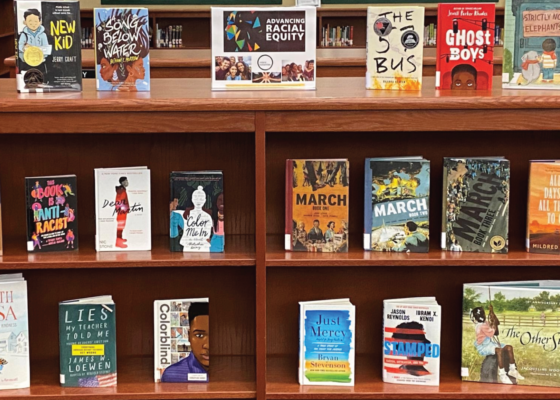Civility in a Fractured Society
September 28, 2010National Endowment for the Humanities Chairman Jim Leach visited Indiana as part of his 50-state Civility Tour. Here is a recap of one of the events–a panel featuring Chairman Leach, Rabbi…
National Endowment for the Humanities Chairman Jim Leach visited Indiana as part of his 50-state Civility Tour. Here is a recap of one of the events–a panel featuring Chairman Leach, Rabbi Sandy Eisenberg Sasso of Congregation Beth-El Zedeck and DePauw University Dr. Brian Casey. The discussion was moderated by Kathryn Kennison.
In his opening remarks, Chairman Leach described the reason behind his civility tour—which has stops in all 50 states; Rabbi Sasso then reflected on the power of narrative and stories to illustrate examples of civil debate; and Dr. Casey mused on the tendency in modern mass-media discourse to frame debate as an over-polarized, false dichotomy.
Chairman Leach then commented on civility in modern life; the postwar generations are the first to have the power to end worldwide civilization, and in his opinion have been burdened with that obligation of restraint. He and Dr. Casey then discussed historical precedents of incivility in American life and politics; the mid-19th century, after all, saw the nation split violently over irreparable political debates but also fostered the nation’s first native literary flowering in the works of Thoreau, Melville, Whitman, and so on (the “American Renaissance”). This led to a musing among all three panelists: do eras of contention inspire artists and writers to greater works than periods of relative calm?
All panelists, led by Dr. Casey, then reflected on the role of the humanities in driving civility by encouraging a sympathetic mindset. Dr. Casey fretted that education, and particularly higher education, in America has become too centered on the self and is ignoring its traditional duty of expanding students’ worldviews through exposure to a wide range of cultures. All agreed that respect and empathy for the “other,” whoever that might be, is at the core of civility and a fundamental cornerstone of the humanities. Chairman Leach remarked on the virtue of respectful argument as a bulwark against political dogmatism and tyranny.
Dr. Casey then opened a question to the panel: In the modern media world, wherein vast amounts of opinion and information can be communicated extremely rapidly with little or no analysis, who (if anyone) is to determine what is “signal” and what is “noise?” This question was quickly tied into a discussion of the recent primaries and the large role played by nonparty and radical (“Tea Party”) activists in particular. Questions of “populist rage” arose: As humanists presumably interested in fostering civic political discourse, can we counter it? Should we attempt to counter it? Rabbi Sasso concluded this discussion with the comment that, in her opinion, the counter to “noise” is active listening and respectful response.
An audience member then asked a question centered on the bridge between civil discourse and civil language: It is clear that modern, anonymous online communities allow a dramatic coarsening of language and debate. Have we, in the interests of encouraging political and social expression, created an environment entirely free of rules? Is there a case for censorship? Chairman Leach led the response discussion, urging great caution in this area: Personal censorship, he charged, can quickly slide into political censorship. The panel seemed to generally agree that, regrettable as coarse and vulgar language is, it is preferable to active censoring of voices that might otherwise go unheard.
Another audience question requested recommendations on books. Dr. Casey suggested Richard Hofstadter’s Pulitzer Prize-winning Anti-Intellectualism in American Life (first published in 1964). His discussion of the book was not entirely cogent, but he seemed to be of the opinion that Hofstadter more-or-less predicted the current state of American discourse and still had much to say to a modern audience on how readily reason and debate can be devalued over pleas to raw emotion. Rabbi Sasso recommended her own In God’s Name, a children’s book on both the personalization and universality of notions of the holy. Chairman Leach had no specific books to recommend, preferring instead to recommend reading essentially anything, especially fiction, that expanded the reader’s worldview. Literature, he argued, helps us “stretch our imaginations” and “expand our horizons,” building our previously-noted skills in empathy for and engaging with “the other.”


